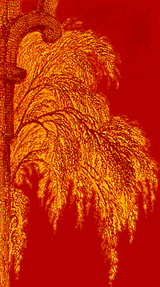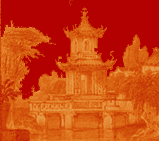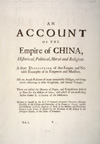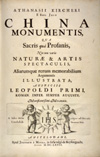
While Marco Polo's fabulous account of his sojourn in China (Cathay) in the 13 th century made Europeans aware of the vast empire, the Portuguese were the first European nation to establish regular contact with China through a fortified trading post built at Macao in the 1550s. Matteo Ricci, the first Jesuit missionary in China, arrived in Macao in 1582 with the goal of converting the Chinese Emperor, and through him the whole nation, to Christianity. The scholars of the Ming dynasty whom the Jesuits met, though interested in the world beyond China's borders, believed that China had but little to learn from outside. The Jesuits were awed by the antiquity, sophistication and wealth of China, and above all by the Confucian philosophy which lay at the heart of government. Well into the 18th century, the Jesuit writings and translations were a primary source of information about China at a time when the European thirst for knowledge about distant parts of the globe knew no bounds.
The Jesuit accounts of Chinese civilization represented a profound shock to the European sensibility, where civilization was equated with Christianity. The gradual availability of translations of Chinese classics had a significant influence on some scholars of the Enlightenment, such as Gottfried Leibnitz 1646-1716), and Voltaire (1694-1778), who used Confucianism to challenge the religious establishment.











